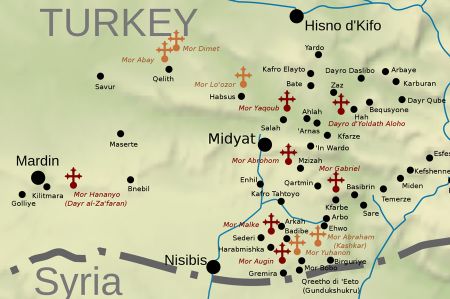Aramaic Christians in Türkiye are receiving their own schooling
- Written by Portal Editor
Today there are around 20,000 Arameans living in Turkey, the majority of this ethnic group living in Istanbul. The members of this ethnic minority still speak Aramaic, which is considered the language of Jesus Christ.
The traditional homeland of the Aramaic minority is in the southeastern Anatolian province of Mardin. The ancient monasteries of the Aramaic Christians are also located there; The most important of these, Mor Gabriel, has become internationally known in recent years through a legal dispute with the Turkish state over the land.
Aramaic initially especially in the area of Edessa
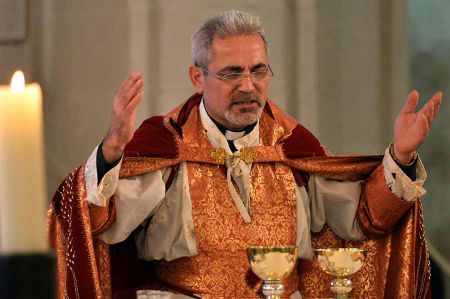 Since at the time of Jesus the Aramaic language was spread from Palestine to the Persian Empire and beyond, historically there is neither a uniform Christianization of the Aramaeans nor a church history common to all. Insofar as Jesus and his disciples spoke a form of Aramaic, Aramaic Christianity existed from the beginning. However, it is very soon overshadowed by a Christianity in the Greek language, in which the New Testament is also spread, worship is celebrated and Christian theology is practiced. As a theological and liturgical language, an Aramaic known as Syriac became particularly important in the area of Edessa and then in Mesopotamia east of the borders of the Roman Empire.
Since at the time of Jesus the Aramaic language was spread from Palestine to the Persian Empire and beyond, historically there is neither a uniform Christianization of the Aramaeans nor a church history common to all. Insofar as Jesus and his disciples spoke a form of Aramaic, Aramaic Christianity existed from the beginning. However, it is very soon overshadowed by a Christianity in the Greek language, in which the New Testament is also spread, worship is celebrated and Christian theology is practiced. As a theological and liturgical language, an Aramaic known as Syriac became particularly important in the area of Edessa and then in Mesopotamia east of the borders of the Roman Empire.
The two major churches of Syrian Christianity emerged from this in late antiquity:
the Syrian Orthodox Church of Antioch
the East Syrian “Church of the East”
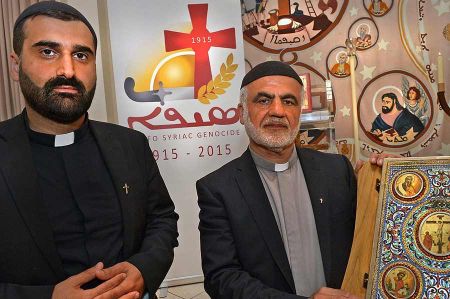 As history progresses, other church groups gain additional importance:
As history progresses, other church groups gain additional importance:
the Maronite Church, which is also Syrian
the Syrian Catholic Church and
the Chaldean Catholic Church, which in modern times is associated with the Roman Pope
united branch of the “Church of the East” (see also Syrian Christians in Iraq).
the Aramaic Free Church, “Hito hirto Suryayto”, mostly called Mhaymne
(corresponding to Arabic muʾmin, “believers”) are known.
the Assyrian Evangelical Church
the Assyrian Pentecostal Church
In addition to the community living in Istanbul, there were and still are smaller Aramaic-speaking groups in the patriarchates of Jerusalem and Antioch. What all of the churches mentioned have in common is the use of (Old) Syriac as the liturgical language and, for a long time, the rule or predominance of Islam in their traditional areas of distribution.
The languages of instruction are Aramaic, Turkish and English
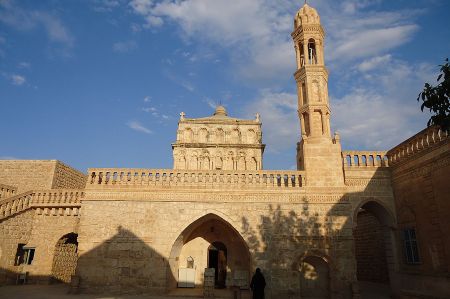 Similar to the Kurdish ethnic group, their own language was previously forbidden in lessons. Since 1928, Aramaic Christians in the Turkish metropolis of Istanbul have been allowed to have their children receive school lessons in their own language for the first time since 1928. A spokesman for Metropolitan Yusuf Cetin told the Catholic News Agency (KNA) in Istanbul on Monday that teaching could be set up in the preschool for four- to six-year-olds in time for the start of the new Turkish school year on September 15th. The languages of instruction are Aramaic, Turkish and English.
Similar to the Kurdish ethnic group, their own language was previously forbidden in lessons. Since 1928, Aramaic Christians in the Turkish metropolis of Istanbul have been allowed to have their children receive school lessons in their own language for the first time since 1928. A spokesman for Metropolitan Yusuf Cetin told the Catholic News Agency (KNA) in Istanbul on Monday that teaching could be set up in the preschool for four- to six-year-olds in time for the start of the new Turkish school year on September 15th. The languages of instruction are Aramaic, Turkish and English.
The opening of the school had been fought over the years by the Aramaic ethnic groups in tough legal proceedings.
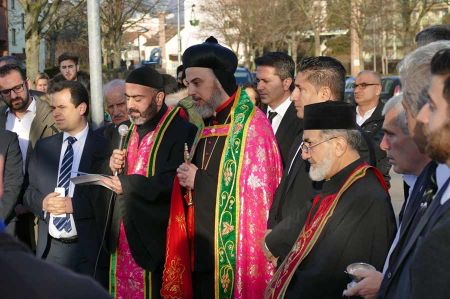 Officially, the Turkish state takes the position that only Greeks, Armenians and Jews are recognized as non-Muslim minorities and that therefore only these groups have the right to their own schools. According to press reports, a court ruled in favor of the Aramaic people in the legal dispute: There was no reason that made teaching in the Aramaic language impossible. Ankara had recently lifted some restrictions on the use of minority languages.
Officially, the Turkish state takes the position that only Greeks, Armenians and Jews are recognized as non-Muslim minorities and that therefore only these groups have the right to their own schools. According to press reports, a court ruled in favor of the Aramaic people in the legal dispute: There was no reason that made teaching in the Aramaic language impossible. Ankara had recently lifted some restrictions on the use of minority languages.
Please read as well:
